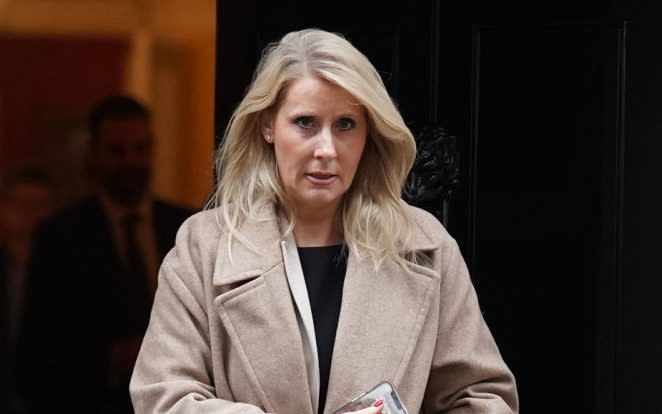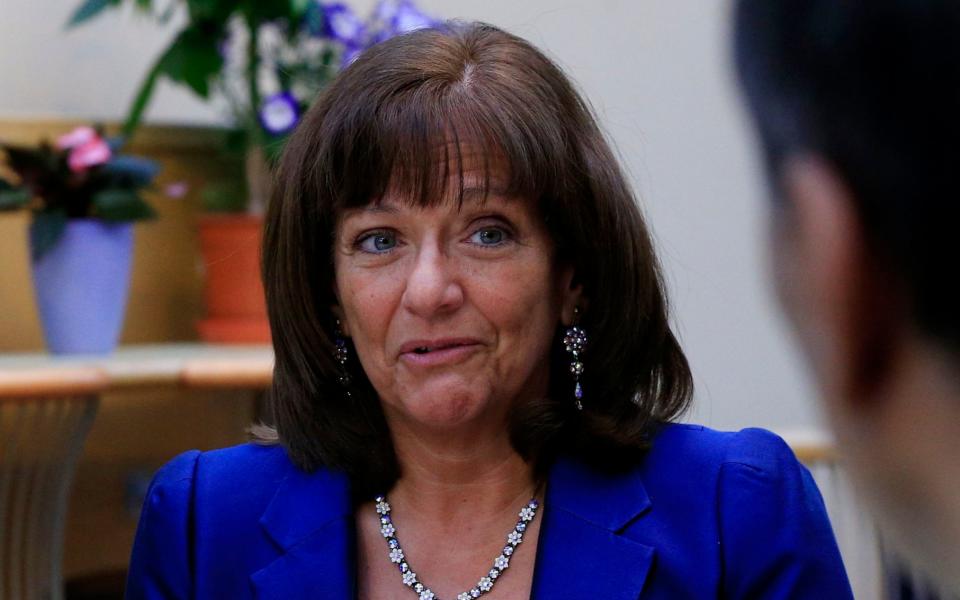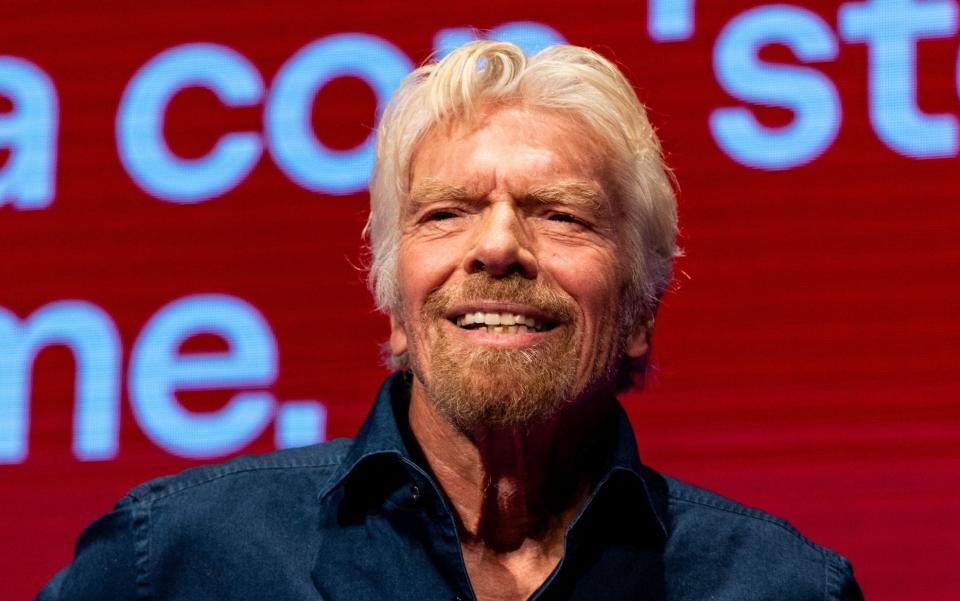How Nationwide’s bet on Labour risks backfiring as member rebellion brews

Nationwide’s chief executive, Debbie Crosbie, knows what she is buying; after all, she has bought it before. When CYBG, the owner of Clydesdale and Yorkshire Bank, bought Virgin Money in 2018, the Glaswegian banker was its chief operating officer.
Whether that is enough for Nationwide’s 16 million members to trust her judgement is another matter. But it is unlikely to be put to the test.
Britain’s largest building society has said that it is not planning to put its £2.9bn takeover of Virgin Money, the combined group created by the CYBG deal, to a member vote.
While Nationwide says it is under no obligation to canvass the members who own it, the decision not to has been criticised given its scale and the possible risks.
Crosbie might feel she has unfinished business with Virgin Money. Having led CYBG on an interim basis before the takeover, she lost out on the chief executive job to Irish banker David Duffy, who remains in charge today.
Crosbie left for TSB, overseeing a tough restructuring, and was put in charge of Nationwide in 2022.

Nationwide says there are objectively good reasons for the deal, which will reshape the UK’s banking landscape. It will turn the building society into the country’s second-biggest mortgage provider and increase its size by around a third, with combined assets of £366bn.
Kevin Parry, Nationwide’s chairman, has written to members saying the deal will leave it “better placed to deliver financial value to our members” and offer more competitive mortgages as well as secure payouts to members, which amounted to £340m last year.
There may, however, be another benefit. While it was not mentioned in Nationwide’s 13-page document announcing its offer, the mutual may have an eye on a possible change in government.
A financial services strategy published by the Labour Party in January outlined an ambition to double the size of Britain’s mutual and co-operative sector, saying the model was “more community oriented than other banking institutions”.
This would include requiring Britain’s financial regulators to report annually on how they are supporting mutuals, relaxing rules on how much of building societies’ funds must come from retail deposits, and requiring banks to refer businesses they turn down to building societies.
This could give the likes of Nationwide a leg-up against major banks, which currently find it easier to raise capital, according to Gary Greenwood, a banking analyst at Shore Capital.
Gareth Thomas, the Labour chairman of the All-Party Parliamentary Group for Mutuals, said he supported Nationwide buying Virgin Money, but called for policy changes to make it easier for building societies to raise capital.

Bulking up by buying Virgin Money would potentially allow Nationwide to capitalise on Labour’s reforms should the party form the next government.
However, it would mark a more aggressive stance under Crosbie, who is said to have shaken up Nationwide’s culture with a more commercial-minded approach since taking charge of the building society.
One banking industry source says the new chief has changed its senior management team and introduced a more performance-based culture, saying: “She [Crosbie] has come into Nationwide and affected quite a large cultural change in a short space of time.”
That has led to concerns about the deal. Baroness Altmann, a Conservative peer and former pensions minister, said last week: “It would be wise for Nationwide members to be given a say in the takeover of Virgin Money.”
Baroness Bowles, who worked on financial services as an MEP, has questioned whether members are “going to be better off by being bigger”.
Bank mergers have a flawed history, often owing to difficulties merging different IT systems that have been built up over decades. “Where these sorts of things have been tried in the past, it’s been challenging,” Greenwood says.
Crosbie will know this only too well. She was brought into TSB when the bank’s chief executive, Paul Pester, was ousted following a botched IT integration after its sale to the Spanish bank Sabadell. Nearly two million customers were locked out of their accounts and some were unable to access funds for weeks.

John Cronin, an analyst at Goodbody, says there may also be cultural differences. “With all these kinds of deals there is some integration and cultural risk,” he says, adding that he believes Crosbie will “have a strong sense of how to handle these challenges”.
Buying Virgin Money would be a lengthy process. Nationwide says it would take “multiple years” to integrate the two, and that Virgin Money would continue to operate as a separate business in the medium term, with the Virgin Money brand phased out over six years.
Pledges around branches staying open would only last until the start of 2026, while Virgin Money’s staff would be protected “in the near term”.
Nationwide’s management says this will all be worth it; the building society’s observers may only recognise the years of uncertainty that this all indicates.
The £400m that Sir Richard Branson would receive as part of the sale, as well as potentially hundreds of millions more in branding rights, may also rankle with the collectivist philosophy.
Nationwide is resisting a vote from members on the grounds that it could delay any takeover and could create uncertainty, making Virgin Money less likely to accept a bid as discussions continue ahead of April 4, the deadline for a formal offer.
It says its strategy of growing through a series of acquisitions through its 140-year history has brought success, and that there is no precedent for holding a vote where one is not required.
However, it will be keenly aware of previous revolts, in particular the mutual insurer LV= being forced to abandon a sale to US private equity giant Bain in 2021, when a significant number of members voted against demutualisation.
Crosbie may believe that the benefits of scale, as well as the prospect of a friendly new government, make betting on a multibillion-pound banking takeover worth it.
As for Nationwide’s customers, they will just have to trust her.

 Yahoo Finance
Yahoo Finance 